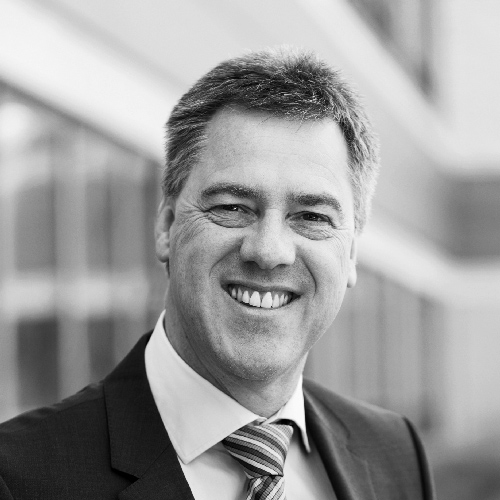When Marissa Song sees a need for the greater good, she doesn’t ask permission to address it. When she received multiple job offers as corporate counsel, she chose the one that had the most significant impact on global health. When her employer was tasked with creating its first sustainability report, she spearheaded the effort. When her colleagues wanted a group to support the company’s LGBT community, she didn’t hesitate to write a charter and organize a calendar of activities.
Song joined Gilead Sciences Inc. nearly twelve years ago, and she now serves as its associate general counsel, corporate. At the company’s headquarters in Foster City, California, Song is responsible for corporate governance, SEC reporting, and all matters related to the board of directors. At least, that’s what her job description says. At Gilead, she’s done so much more for the company culture than negotiate contracts.
After receiving her bachelor’s degree in economics at Berkeley and her JD from the University of Southern California, she worked at a couple of law firms. When she began her search for work as an in-house attorney, she had interviews at retail locations like Gap and Williams-Sonoma. What won her over at Gilead was the company’s work with HIV/AIDS therapies and its mission to discover, develop, and commercialize therapeutics in areas of unmet medical need.
“I really wanted to work somewhere where I believed in the mission.”
Song saw the therapies that Gilead developed used firsthand. Having grown up in Los Angeles and living near West Hollywood, she knew the physical toll HIV/AIDS and its early treatments took on its patients. In many cases, carriers had it written on their faces. Song remembers being easily able to identify people with the illness due to lipoatrophy, or loss of fat, in their face, caused by the first generation of medicines developed to treat HIV. The result was a gaunt and sickly appearance, which made the disease’s presence rather obvious.
By the late 1990s, many of Song’s friends that were living with HIV showed no symptoms. Innovations in HIV/AIDS therapy by Gilead and other pharmaceutical companies, particularly the introduction of combination antiretroviral therapy, made the disease more manageable and the prognosis less grim. “They lived fabulous lives because the diseases were being maintained,” she says. She wanted to be a part of the team that made her friends’ lives possible. “I really wanted to work somewhere where I believed in the mission,” she says.
Gilead was founded in 1987, and today, it has more than eight thousand employees and offices on six continents. The research-based biopharmaceuticals giant has revolutionized therapy for liver diseases, cancer, inflammatory and respiratory diseases, and cardiovascular conditions. Its portfolio of therapies includes a cure for Hepatitis C, the first once-daily single pill regimen for treating HIV, and the first oral antiretroviral pill to reduce the risk of contracting HIV. On the pipeline are treatments for Ebola, some cancers, nonalcoholic steatohepatitis, and more.
After conducting the Fortune 500 company’s first sustainability report, Song was surprised to find that while many companies of Gilead’s size had resource groups for its LGBT employees, Gilead did not. Song surveyed her friends and quickly learned that this kind of organized community was needed. Shortly thereafter, she started an informal group to gauge interest and engage with like-minded people. The community response was overwhelmingly positive. So, she forged on in a more formal capacity and officially founded the LGBT Alliance. With more than 250 members in her local Bay Area chapter alone, Song says she is excited to continue with more programming and help other branches start their own chapters. She is in talks with the Seattle office to share resources and help them found its own alliance.
“Many people have come and told me that once they were hired at Gilead, the first thing they did was look for an LGBT resource group.”
“Many people have come and told me that once they were hired at Gilead, the first thing they did was look for an LGBT resource group,” Song says. “It was nice to create that community.”
Now, the LGBT Alliance is one of only three employee resource groups approved by Gilead’s human resources department, which means programs and initiatives are fully funded and supported by the company. It’s also Song’s proudest professional accomplishment to date.
The LGBT Alliance has opened her eyes to many of her colleagues’ personal stories. Given her location on the West Coast, Song says she works with many people who immigrated to the United States because they were persecuted for being gay in their homeland. “As a minority, I relate to that,” she says. “It’s helpful to have this community—a home for informal mentoring, where they can ask questions and really be themselves.”
In 2016, the group had its first float in San Francisco’s Pride Parade, participated in a day of community service at local homeless shelters, and began working on creating a speaker series. She also wants to partner with another organization to help outreach to high school students, in which Alliance members visit local schools and discuss their experiences or even have students visit Gilead to explore career possibilities.
Song’s push for increased visibility and diversity was heard company-wide. Last year, Gilead introduced a new tenet of its core values, adding inclusion to integrity, teamwork, accountability, and excellence.
“I love that our company realizes that diversity is important,” Song says. “It’s critical for the company’s success.”
